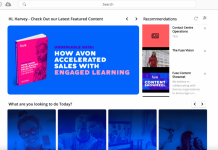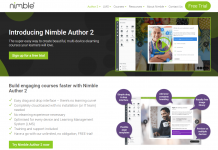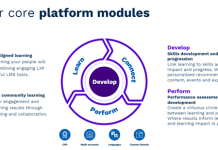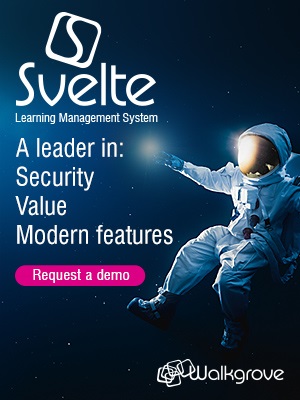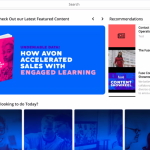The concept of adaptive learning is the delivery of education or training that utilises technology and data to provide individually customised content to students. It intelligently adapts to a learner’s unique needs and preferences.
In the last few years, the idea of adaptive learning has gained more and more interest due to new product developments, the creation of partnerships between elearning software providers and content publishers, and significant investment by the Bill and Melinda Gates Foundation in this area of education and training.

This is likely the future of corporate training and academic education, but we may not all be living in the future quite yet.
Adaptive Learning Definition
You may have heard of adaptive learning, or any of its many synonyms and related concepts – such as adaptive instruction, personalised learning or intelligent tutoring systems. What the term exactly means however is still unclear to many.
The basic premise of adaptive learning is to use technology to improve education and training by providing individualised programmes to students based on data that is gathered both before and throughout the learning process.
The best adaptive learning platforms use some form of data mining to put together education or training content for students that’s optimised for their unique needs. The platform uses data that it continually gathers when a student interacts with any learning content.
Such a platform can determine which learning activities, delivered through what medium and in what sequence, will help improve the student’s learning.
Each student goes through a highly individualised education or training experience, which should provide much better learning results.
Does it Work?
Research on the benefits of adaptive learning is extremely promising. One study by Education Growth Advisors (EGA) showed that since forming a partnership with Knewton (a personalised learning platform provider), pass rates at Arizona State University have gone up by 18 percent and withdrawals from maths courses have reduced by 47 percent.
Merck found that adaptive simulations for mandatory training was 15X faster than instructor-led training, while bringing a 21% improvement in performance scores.
After Smart Sparrow tutorials were used in an engineering course at the University of New South Wales, drop outs decreased by 55 percent.
A number of interesting elearning companies, such as Area9 Lyceum, ETU and Filtered are using tech to create impactful, date-driven learning experiences.
What’s the Catch?
Careful preparation and execution is vital to the success of an adaptive and personalised learning implementation. Learning institutions have to work closely together with platform providers in order to set up a learning environment that achieves the envisioned results.
This mode of learning also only provides limited benefit for entry-level courses, which makes it more difficult to scale.
With new digital learning providers entering the market, AI powering ever faster data processing, and partnerships between platform providers and learning organisations being set up all the time, it looks like adaptive and personalised learning experiences are here to stay and develop.
This addition to the L&D toolkit is well on its way to revolutionising the entire education and training sector, even though there is still a long way to go until it becomes the standard for corporate and academic learning.
If you are working in the education or training industry, now is the time to get involved in adaptive and personalised learning if you want to be ahead of the curve.
Further Reading:
Adaptive learning tech and education – insights from the Google blog on how this technology can save teachers time and provide data around how students learn.
Adaptive Learning advice and resources on the ETU website.
If you would like to find out more about the latest and best in learning technology, please Contact Us here at Learning Light.


